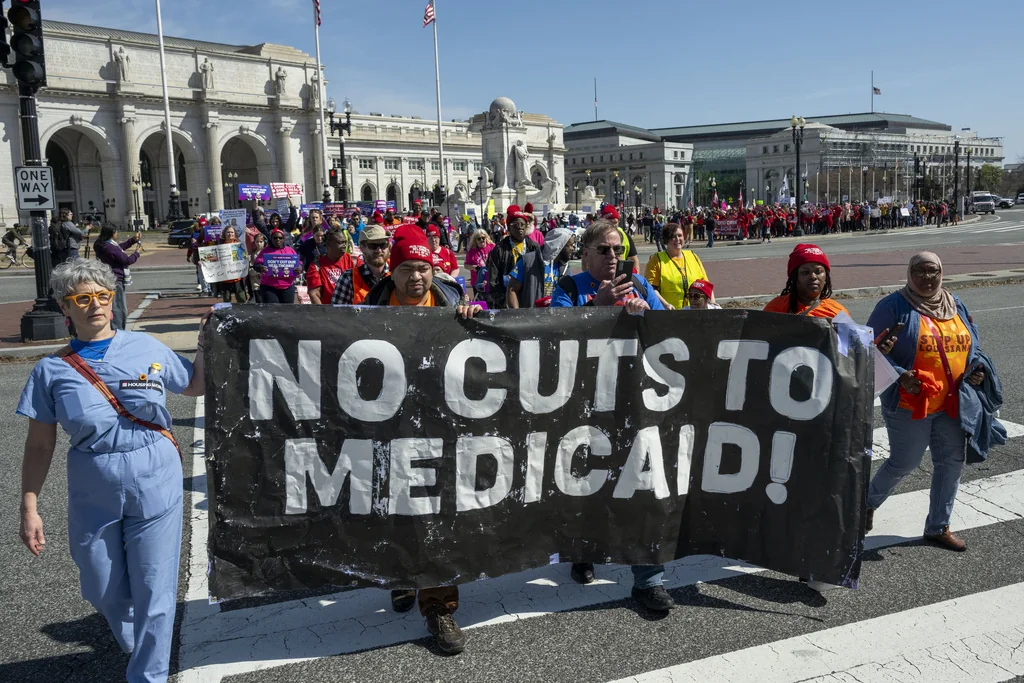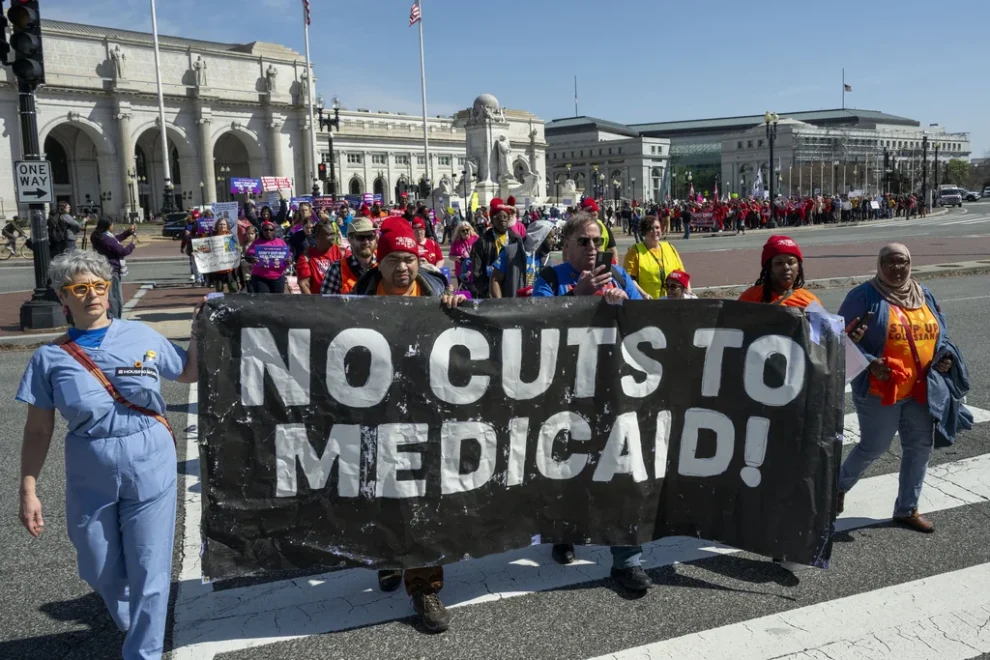Sprawling legislation to advance President Donald Trump’s domestic agenda has yet to clear Congress, but that hasn’t stopped Republicans and Democrats from already cutting ads for the campaign trail.
The rhetoric offers a look into early messaging tactics both parties will fine-tune ahead of the 2026 midterm elections — if Republicans can win over enough GOP holdouts to muscle the so-called One Big Beautiful Bill Act through their slim House and Senate majorities.
For Republicans, it’s about painting Democratic opposition as a desire to hike taxes on families and use their taxpayer money for illegal immigrants to receive Medicaid.
“Democrats sealed their fate by voting for the largest tax increase in modern American history and giving taxpayer-funded healthcare to illegal immigrants,” said Chris Gustafson, the communications director for Senate Leadership Fund, a super PAC tied to Sen. Mitch McConnell (R-KY). “Rest assured; voters will hear about it.”
For Democrats, it’s about depicting Republicans as heartless budget-slashers who want to strip poor people of healthcare to line the pockets of their wealthy friends with tax cuts.
“There are aspects of this bill that are a threat to your daily life, in terms of your income, your financial security, your household expenses,” said Jon Reinish, a Democratic strategist and former aide to Sen. Kirsten Gillibrand (D-NY), who now chairs Senate Democrats’ campaign arm. “That’s what’s going to get voters to tune in, especially going into a midterm year.”
House Republicans have passed Trump’s bill, which focuses on his priorities for energy, the border, and taxes. Senate Republicans are considering changes before sending it back to the lower chamber. Republicans want it passed in both chambers and sent to Trump’s desk by the July 4 recess.
House Republicans have targeted 25 vulnerable Democrats, including more than a dozen in Trump-won districts, for supporting the “largest U.S. tax hike in generations” and doling out “freebies” to illegal immigrants by voting against the measure. Internally, their campaign arm is advising members to frame new Medicaid work eligibility requirements and other cuts as safeguarding the government-run healthcare program for low-income Americans by rooting out “fraudsters, able-bodied adults who refuse to work, or illegal immigrants.”
The nonpartisan Congressional Budget Office has estimated that the roughly $700 billion in Medicaid cuts and changes would likely mean 8.6 million people would lose coverage.
Senate Republicans’ campaign arm has largely kept its powder dry, though it and adjacent groups like the Senate Leadership Fund expect to ramp up campaign efforts on the bill once it clears the Senate.
GOP strategist John Feehery advised Republicans to focus more on immigration, on which Trump polls highest, to counter Democratic attacks on Medicaid rather than nuanced messaging on taxes. A significant portion of Americans owe little or no federal income taxes.
“The tax cuts are important, but most voters don’t really think that their taxes are going to go up,” said Feehery, who was an aide to former GOP House Speaker Dennis Hastert in the early 2000s. “If you think gutting Medicaid is making sure that illegal immigrants don’t get Medicaid, let’s have that fight.”
Reinish, the Democratic strategist, acknowledged challenges with countering that message and said his party is still searching for a convincing rebuttal.
“Even though I don’t believe it to be accurate, I think the Democrats are automatically in a hole there, given the inability of the party to convince voters that their vision for immigration is on their side,” Reinish said. “There’s also so many instances … in which in big cities that have super far-left city councils or otherwise where there are taxpayer-funded resources going to undocumented, illegal immigrants.”
Trump told Republicans in a recent private meeting not to “f*** around with Medicaid,” underscoring the party’s delicate dance around how much to change a program relied upon by poor, working-class voters, many of whom supported him in the election.

The latest ad from Senate Democrats’ campaign arm, for example, centers on the GOP’s proposed cuts to Medicaid and other healthcare programs to help offset extending tax cuts set to expire at year’s end.
On the other side of the Capitol, House Democratic leadership rolled out ads of their own targeting 26 Republicans in vulnerable districts across California, Iowa, Michigan, Missouri, New York, North Carolina, Virginia, and Wisconsin. The digital spots whack Republicans for voting to cut Medicaid funding to “pay for tax cuts for the ultra-rich.”
If the campaign ad money that’s already bombarding the airwaves this year, in what would typically be a calmer period following an expensive 2024 cycle, is any indication, the 2026 cycle is likely to shatter records.
Off-year advertising for House races is already at a record pace. From January through May, campaigns spent more than $18 million on non-special House elections, the most ever for that period, according to the ad-tracking firm AdImpact. That figure compares to just $9 million in 2021 and $5.7 million in 2023 during the same roughly five-month period.
House Republicans, who are fighting to keep their three-seat majority, have outspent Democrats. GOP advertisers account for $11 million of the $18 million compared to $7 million from Democrats, per AdImpact.
EIGHT PROVISIONS IN THE ‘BIG, BEAUTIFUL BILL’ THE SENATE MAY CHANGE
In particular, the toss-up Georgia Senate race is seeing money flood the airwaves. A crowded GOP primary field is expected as Republicans have high hopes for defeating Sen. Jon Ossoff (D-GA). Republican candidate Rep. Buddy Carter (R-GA) has already spent and reserved $2.4 million in May and June, according to AdImpact.
The firm also says total political ad spending and reservations have reached a whopping $550 million this year, compared to the $309 million by this time in 2021, the last off-year following a presidential election.
























